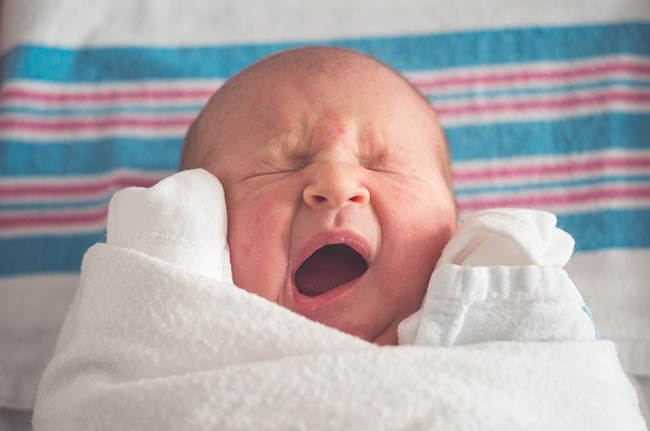Have you ever wondered why your toddler isn’t responding to you with what you believe should be a “normal” reaction? Or you can’t understand why your baby keeps opening and shutting the closet door over and over again?
Humans are one of the few species on earth born “unfinished.” At birth, our brains are nowhere near fully developed, and in fact, the human brain develops quite slowly over time. New technology such as CAT scans, MRIs and PET scans all indicate that your brain is still developing into late adolescence.
Therefore, the way your baby and toddler thinks is colored by his stage of development. At first, your baby will view the world in concrete terms. The way he reasons and responds is directly correlated to this particular stage. For this reason, it is important to take your child’s development into consideration when speaking with your child and when placing behavioral expectations on him.
Synaptic pruning
Your infant’s brain is born into the world with approximately 86 billion neurons; while this sounds like a lot, it is actually about half of what it will have by the end of your baby’s first year. In fact, your baby’s brain will increase in size by a factor of up to 5 by adulthood.
At age two or three, the brain has up to twice as many connections as it will have in adulthood; the reason, is that as we grow older, our brains perform a sort of “use it or lose it” function: effectively “pruning” unused connections over the years.
Your baby’s first year on earth is full of neuron growth as well as the pruning of synapses which is affected by environmental stimulation (or lack therof).
Your Baby’s Brain: Age One
So much happens during the first year of life that many parents I know are often overwhelmed and amazed at the changes their baby makes at this time. I am going into more depth in this matter in my upcoming book, but I wanted to give you a brief glimpse of your baby’s brain development – particularly in terms of cognitive and social learning – during ages zero to three. In today’s blog post, we’ll take a quick look at your baby’s brain development from birth through his first birthday.
Social and Cognitive Learning
The brain development that happens in your baby’s social learning as well as basic problem-solving is phenomenal in the first year2. Your baby goes from not knowing how to do anything to being able to speak a foreign language, follow simple directions, such as “pick up the book,” and using items correctly, such as using a book for reading time and using a cup to drink.
While your baby still may not understand the nuances of physical activity, he is learning to explore by banging things together, throwing things, dropping items, and shaking them up and down. This is your one-year-old’s way of learning how things work. He may be throwing a stuffed animal across the room over and over again, but know that this action is not to annoy you, nor is it done as an emotional response. Your baby is simply doing what all babies do: repeating a movement in order to understand it.
Meanwhile, your baby also begins to develop social and emotional connections during his first year. You may wonder why your normally calm baby suddenly seems scared of strangers around 7-8 months old. This comes from a brain spurt in the frontal lobe that brings about attachment; your baby has already formed an attachment with you and with other familiar caregivers, thanks to the familiar sounds of your voices and your touch, and they may experience sudden fear when you leave and/or when someone unfamiliar approaches3.
Until your baby is one year of age, he is still lacking behavioral control. That is to say, that he may start to understand that hitting a sibling is wrong, but his brain is still in the process of developing the ability to override the impulse to do so. Therefore, it’s important for you to be aware, and to react to his developmental stage appropriately.
In my next blog post, I’ll share some parenting tips for parents of newborns.
References for this post:
1.http://www.cdc.gov/ncbddd/childdevelopment/positiveparenting/infants.html
2. http://www.cdc.gov/ncbddd/actearly/milestones
3. http://www.zerotothree.org/child-development/brain-development/baby-brain-map.html


